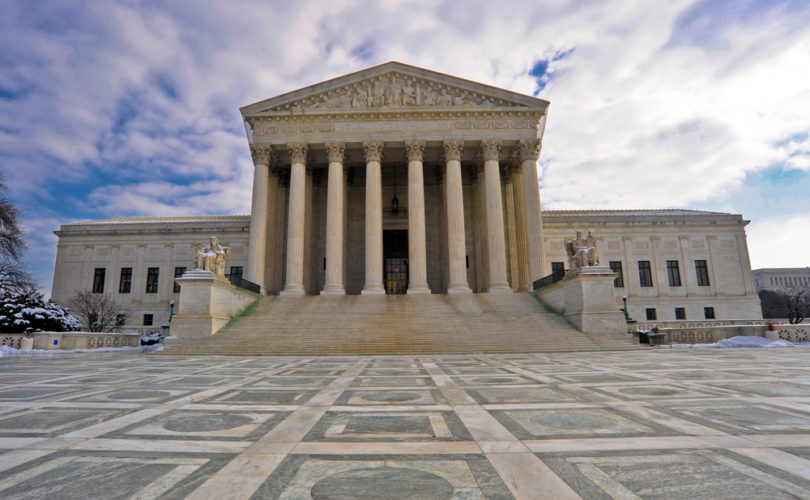The U.S. Supreme Court has officially become post-modern. Not only did it redefine marriage this summer, but Justice Kennedy's majority opinion implied that religious liberty only applies to advocacy — not the practice of religion in private and public.
Now, the Court has made it clear that some religions deserve more liberty than others. Yesterday, it denied a stay of a lower court's decision ordering a Christian clerk to violate her conscience by handing out marriage licenses for relationships that aren't marriage:
The U.S. Supreme Court has denied Rowan County Clerk Kim Davis' request for a stay in a judge's ruling, which orders her to issue marriage licenses.
Davis will have to choose whether to issue marriage licenses Tuesday, defying her Christian conviction, or continue defying a federal judge who could fine her or send her to jail.
So, according to the Supreme Court, people can advocate for their beliefs — but they can't practice them. Unless you're Muslim, I guess. From early June:
The Supreme Court on Monday revived an employment discrimination lawsuit against Abercrombie & Fitch, which had refused to hire a Muslim woman because she wore a head scarf. The company said the scarf clashed with its dress code, which called for a “classic East Coast collegiate style.”
“This is really easy,” Justice Antonin Scalia said in announcing the decision from the bench.
The company, he said, at least suspected that the applicant, Samantha Elauf, wore the head scarf for religious reasons. The company’s decision not to hire her, Justice Scalia said, was motivated by a desire to avoid accommodating her religious practice. That was enough, he concluded, to allow her to sue under a federal employment discrimination law.
The vote was 8 to 1, with Justice Clarence Thomas dissenting.
Some argue that Davis' Christian beliefs don't matter; she is a public employee, and if she doesn't like the law, she can go work in the private sector. But then why is the Court requiring that a private company uphold what Thomas noted was a neutral policy for all employees — and, therefore, not intended to be discriminatory against religious beliefs or their practice?
The cognitive dissonance is astounding.

